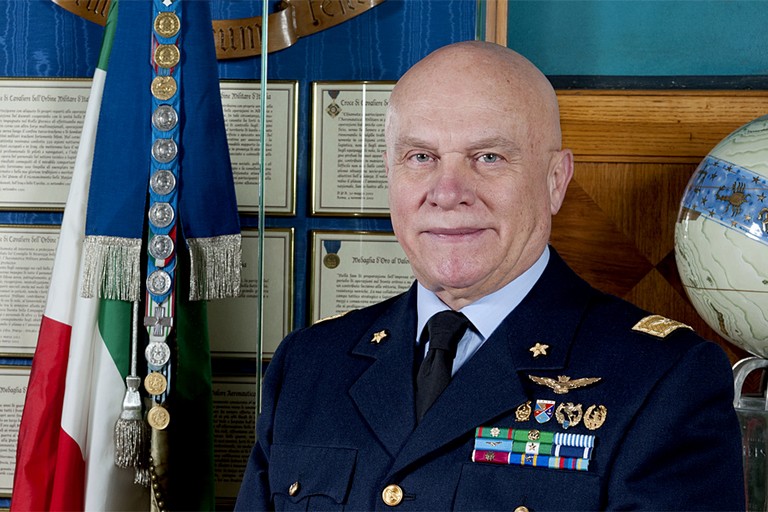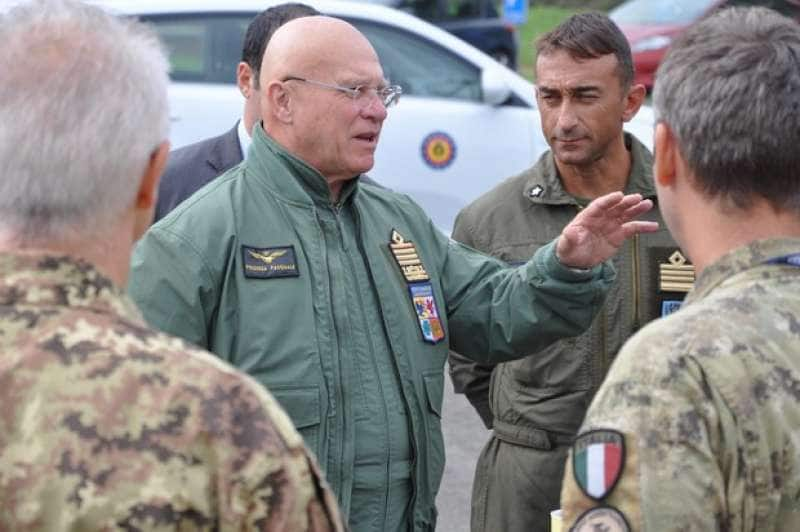Winds of war are in the air in Eastern Europe with Washington and Moscow tightening up their positions by the hour.
"Russia cannot ignore the activity of NATO and the risk of Ukrainian armed forces staging provocations in the Donbass is now higher", Thundered Vladimir Putin's spokesman, Dmitry Peskov. While in Brussels the 27 EU foreign ministers seek "coordination" on the line to take with Moscow, especially on the tenor of the sanctions to be imposed in the event of an invasion, Kiev said it had just dismantled a "criminal group" supported by Russia that was preparing an attack.
NATO, on the other hand, has strengthened its contingent in Eastern Europe, with a series of allied countries announcing the dispatch of men and vehicles, including ships and fighters. The United States intends to deploy troops in the Baltic, there is talk of 5.000 soldiers, which can be increased if necessary, the Pentagon has, in fact, put another 8.500 soldiers on "alarm".
One of the spokespersons of the EU Commission on sanctions against Russia said that "there is a strong unity between the Member States and our international partners with the determination to be ready. The work is very advanced in order to be able to put in place a strong deterrent and robust measures in case the dialogue is not successful. If Russia embarks on future violations of Ukrainian territorial sovereignty or aggression we will react very strongly, there will be strong political consequences and massive economic costs will be inflicted on the aggressor ".
London and Washington, as a precaution, have also already reduced the staff of the embassies in Kiev, repatriating the families of diplomats. Berlin offered them hospitality.
The general Pasquale Preziosa, former Chief of Staff of theair Force and today president ofSafety Observatory di Eurispes, on La Verità made an interesting analysis that clarifies, in a very lucid way, the situation of tension created in the middle of Europe.
The reduction of personnel from Western embassies, the general specifies, is a precautionary measure for the levels of crisis reached in the ongoing confrontation between Ukraine and Russia. Even if the security of embassies abroad is a prerogative of the host state, Ukraine, fearing for its own safety, consequently, will not be able to guarantee a sufficient level of security to the Embassies present.
Although the US is planning to send 5000 soldiers to the Baltic area, these are to be considered symbolic measures to mark the territory that do not suggest any level of military confrontation, given the size of the Russian troops deployed at the borders which amount to about 170.000 units.
Such strengthening may take hold in a third NATO territory, only to give greater strength to the Alliance's level of deterrence, given the high levels of crisis on Ukraine's eastern borders.
Moreover, NATO already has the mission "Enhanced Forward Presence”, Precisely in the border countries with Russia in order to stem the Russian requests addressed to Ukraine, Europe and the United States.
On the start of a possible military escalation, Preziosa said that predicting the future in today's complexity is very risky because scenarios are veering from risk to uncertainty. However, the situation in Ukraine today appears, from a by now historical point of view, very similar to that of August 2008 in Georgia, with underlying political motivations similar to those of Ukraine today.
NATO, Preziosa emphasizes, lacks the legal conditions, linked to Art. 5 of the NATO Treaty, which presupposes an armed attack against one or more NATO allies, in order to be able to intervene militarily in support of Ukraine, as in the case of Georgia.
Added to this is that Ukraine is not in the economic, social and military conditions to be a real threat to Russia. Ukraine has a GDP of only $ 155 billion, while Russia has a GDP of $ 1,5 trillion (a thousand times higher) and is equipped with a large nuclear arsenal with added level of hypersonic weapons.
Socially, Ukraine is also already divided between a pro-Western part of the population and a pro-Russia part. From time immemorial east of the DNEPR river there has always been a great Russian influence both for economic and ethnic reasons, losing the relationship with those regions means losing some foundations of the Russian economic system.
In this muscular confrontation, Preziosa argues, both sides bring forward their respective reasons. Russia has widely declared, in all fora, its "red lines" on the subject which, conversely, have already been automatically rejected by the US, NATO and the EU.
At this point, those who have a credible political capacity to resist longer, the leadership and the will and the means to be able to reach the goal of confrontation will win.
None of the nations involved in the Ukraine affair really wants armed confrontations and the first to use force will lose the game. It is a comparison, says Preziosa, which will be played on the wise use of power.
At the end of the confrontation someone will lose out in terms of the credibility that it assumes so much value today in the strategic competition underway for the new world order.

